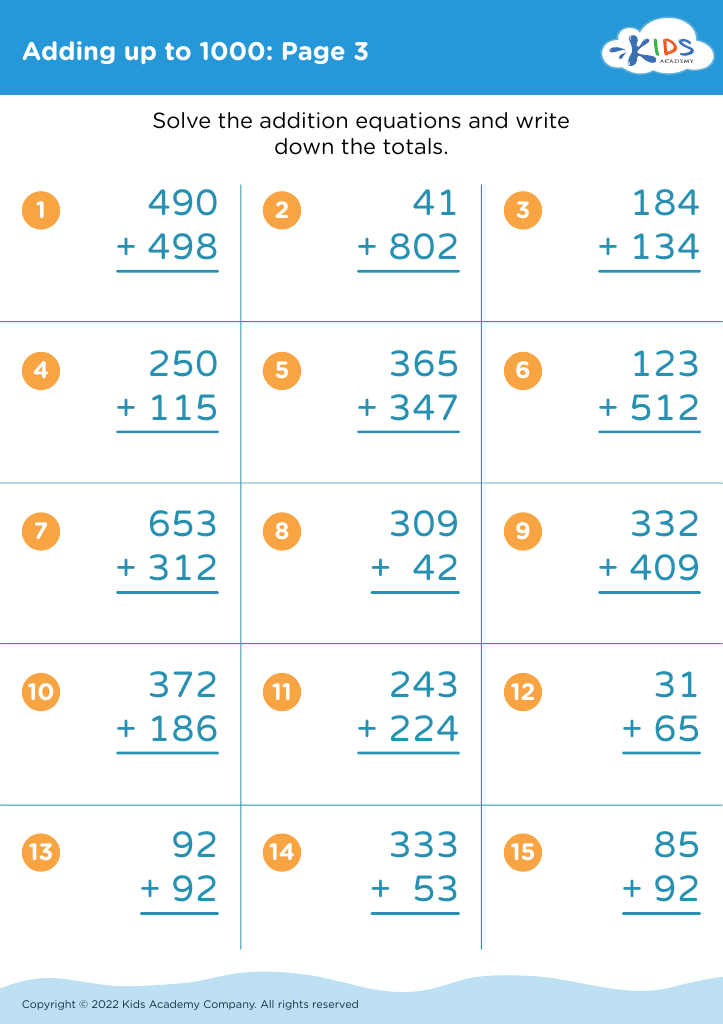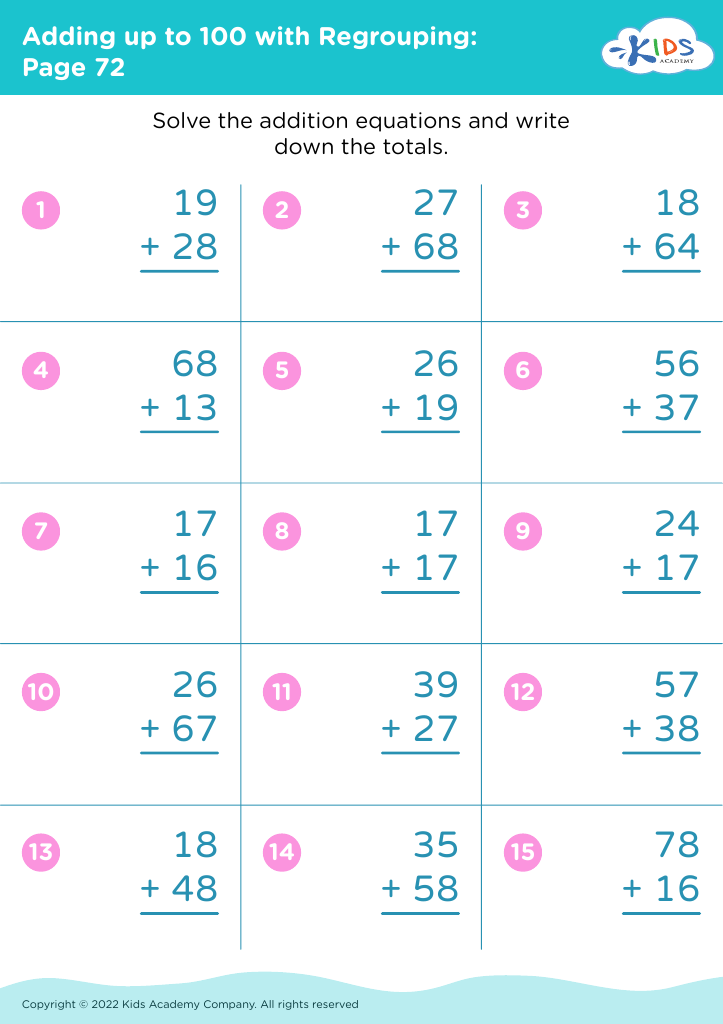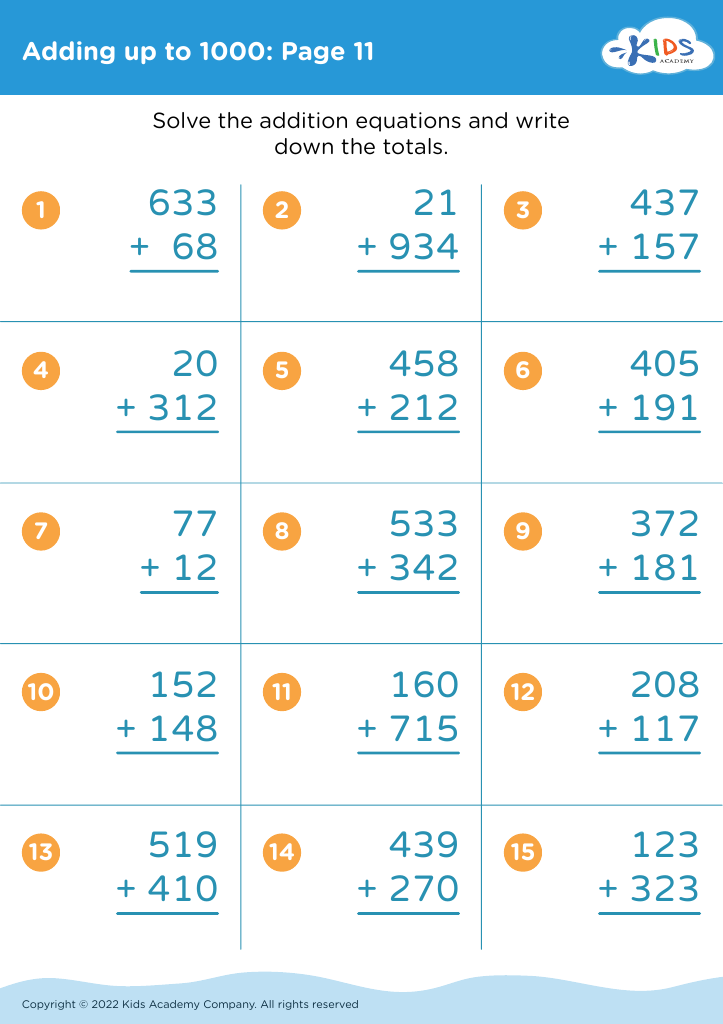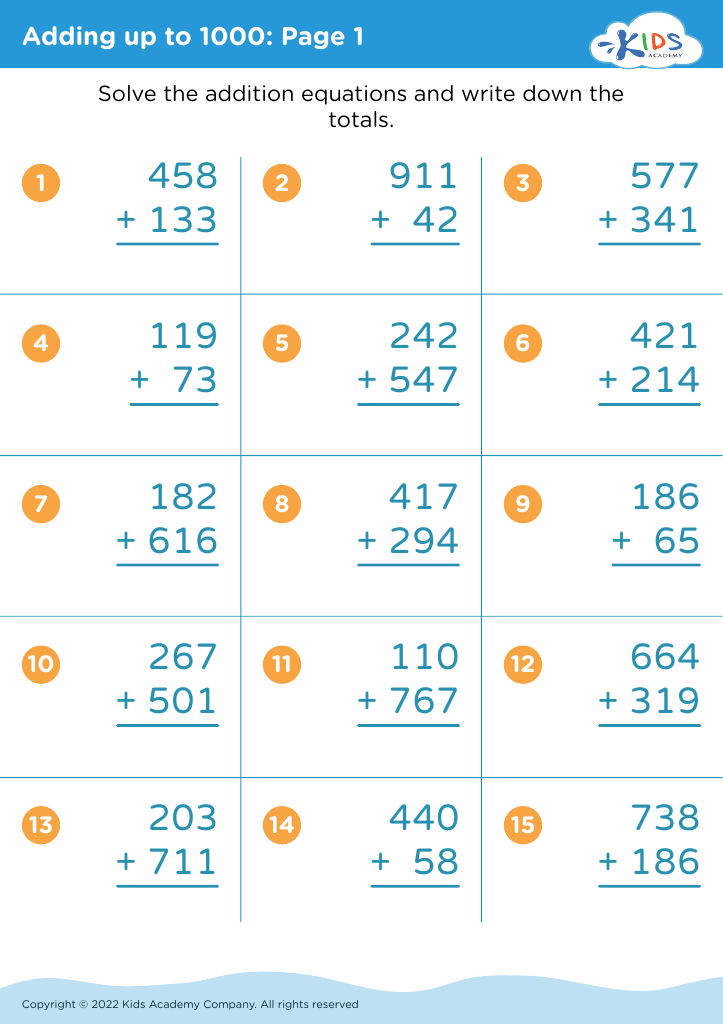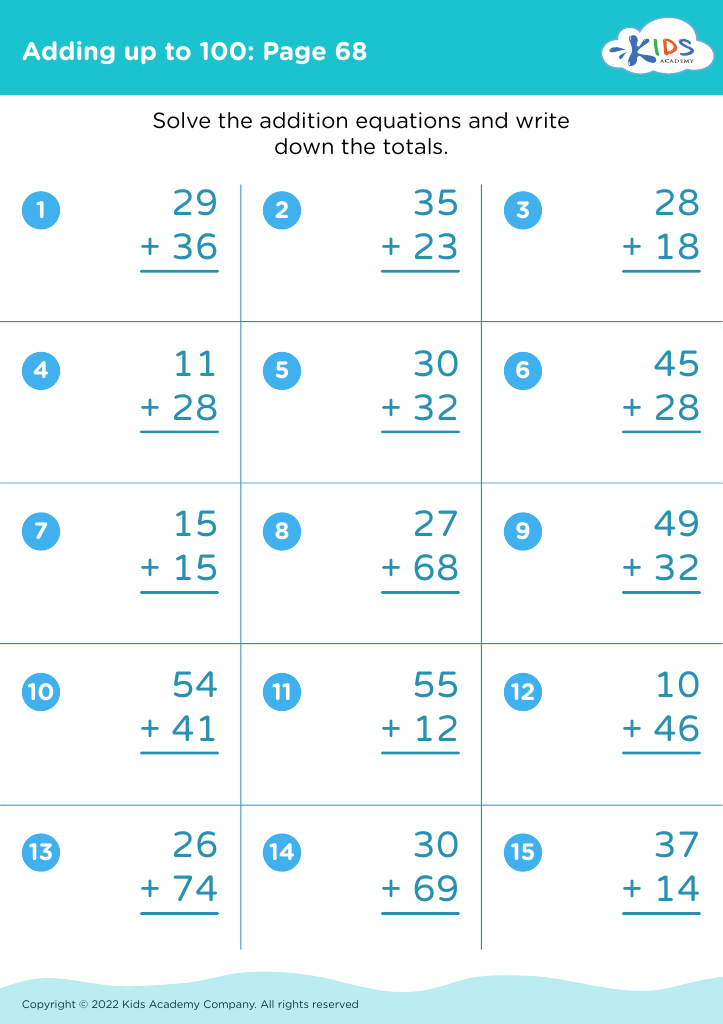Understand multiplication Addition Worksheets for Ages 3-7
6 filtered results
-
From - To
Explore our "Understand Multiplication Addition Worksheets" specially designed for kids ages 3-7! These engaging and colorful worksheets introduce young learners to arithmetic concepts by connecting addition to multiplication. Our fun and interactive worksheets lay down essential math foundations, helping kids build a strong understanding of basic operations. Perfect for early grade students, the exercises incorporate visuals and playful activities to make learning math an enjoyable experience. Ideal for parents and teachers, these worksheets encourage practice and mastery of essential skills, setting the stage for future success in math. Download your free worksheets today at Kids Academy!
Parents and teachers should prioritize helping young children understand multiplication and addition, as these skills lay the crucial groundwork for their overall mathematical development. At ages 3 to 7, children's brains are highly adaptive, making it an ideal period to introduce fundamental concepts. Early mastery of addition serves as a building block for more complex operations like multiplication.
Teaching addition enhances a child’s ability to recognize patterns, develop problem-solving skills, and understand number relationships. These cognitive skills are essential for logical reasoning and critical thinking beyond math, aiding in subjects such as science and reading comprehension. Meanwhile, introducing the basics of multiplication through repeated addition helps children grasp quantities, measurements, and even concepts of time and money at an early stage.
When children understand these fundamental operations, they build a strong foundation and confidence to tackle higher-level mathematics in later years, reducing math anxiety. Engaging them with interactive games and real-life applications can make learning enjoyable and relevant, promoting a positive attitude. Therefore, by investing time in teaching young children multiplication and addition, parents and teachers equip them with life-long skills crucial for academic success and daily activities.

